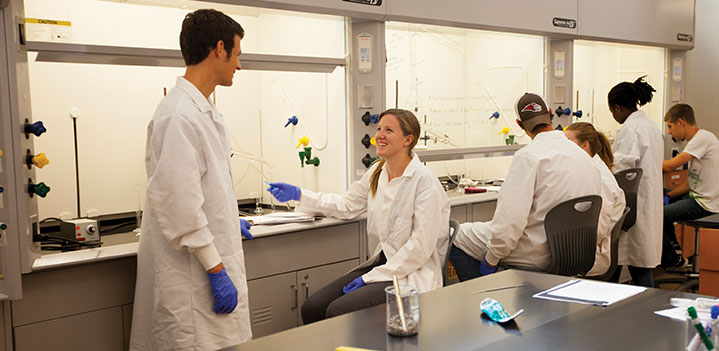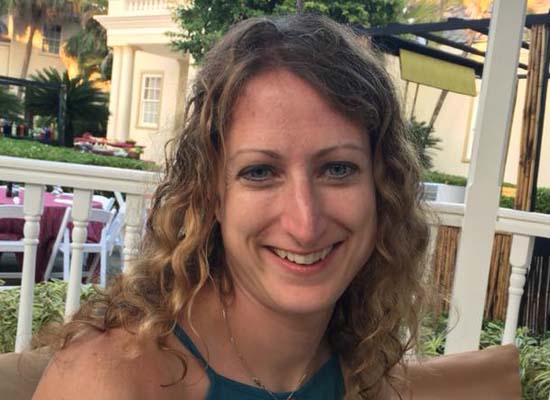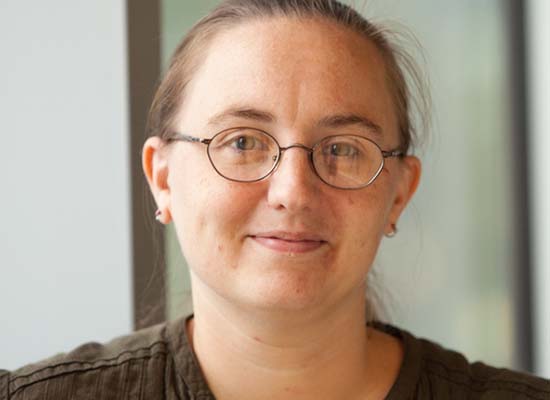
Pre-Med Program
Bryn Athyn College offers many programs that satisfy the course requirements for admission to schools of medicine, dentistry, osteopathy, optometry, podiatry, and other health-related fields. While pre-medical students most often major in biology, medical schools will accept students with excellent records regardless of their major, provided they have a solid foundation in basic science and math, strong communication and analytical skills, and experience in the health profession in the form of employment, volunteer work, and/or internships.
Medical College Admission Test (MCAT)
The two primary factors that will influence a student’s choice of courses are the admission requirements of the medical school he or she wishes to attend, and an understanding of the courses that will best prepare them for the Medical College Admission Test (MCAT). Students should review the requirements of their targeted medical schools early in their career at Bryn Athyn College so that, with the assistance of the Pre-Medical Advisor, they may plan a course of study that will maximize their likelihood of acceptance.
The following courses, along with BAC core requirements and those of the student’s selected major, are recommended and reflect the MCAT:
- Bio 122, 123: Introduction to Biology I and II
- Bio 210, 220: Human Anatomy and Physiology I and II
- Bio 232: Cell Structure and Function
- Bio 315: Biochemistry
- Chem 110, 111: General Chemistry I and II
- Chem 210, 211: Organic Chemistry I and II
- Phys 180, 181: General Physics I and II or Phys 210, 211: Principles of Physics I and II
- Math 130: Introduction to Statistics
- Math 150: Calculus I (Calculus is required by many, but not all medical schools)
- Psyc 101: Introductory Psychology
- Soc 110: Introductory Sociology
Freshman Year
- Begin taking the appropriate prerequisite coursework in the sciences, such as chemistry and biology. Talk with your faculty advisor about your academic progress, future plans, etc.
- Attend programs and events sponsored by the pre-medical advisor.
- Get to know your professors.
- Research your intended career and talk to people in the field.
- Join at least one activity in which you are interested and which offers leadership opportunities.
- Get involved in a community service project or volunteer in a health care setting to test your interest in the field.
Sophomore Year
- Continue taking the appropriate prerequisite coursework.
- Attend programs and events sponsored by the pre-medical advisor.
- Continue to build relationships with your professors, as you will be asking them for letters of evaluation in junior year.
- Read about current issues and topics in health care. Stay informed about your intended career field.
- Get clinical experience in your area of interest through shadowing or volunteering in a health care facility.
- Consider research opportunities at BAC or local health care facilities.
- Get involved in an activity that interests you and seek a leadership role.
- Consider becoming a resident assistant (RA) to enhance your leadership skills.
Junior Year
- Complete any missing prerequisite coursework.
- Attend programs and events sponsored by the pre-medical advisor.
- Ask your professors for letters of evaluation.
- Determine how you will prepare for the required admission tests (MCAT, DAT, GRE, etc.) and register for a course if desired. BAC offers review sessions to assist with your preparation.
- Meet with the pre-medical advisor about your applications.
- Talk with biology, chemistry, or physics professors about becoming a TA for a basic science course that you have taken and in which you excelled. This will also allow you to reinforce basic science skills that are tested on the MCAT, DAT, etc.
- Continue gaining clinical experience in your area of interest.
- Make plans for a summer internship or research experience if desired.
- Register and take the appropriate admissions entrance exam and send scores to the institutions to which you will be applying.
- Complete online applications for admission by mid to late summer.
- Request your letters of recommendation to be sent to the appropriate schools or application services.
Senior Year
- Prepare for and take interviews. Arrange for mock interviews on campus if desired.
- Wait for decisions on your applications.
- Fill out financial aid/scholarship forms.
- Keep the pre-medical advisor informed about all decisions on your application.
- If you need to improve your academic record prior to applying to a health professional school, consider a post-baccalaureate enhancement program and apply if needed.



